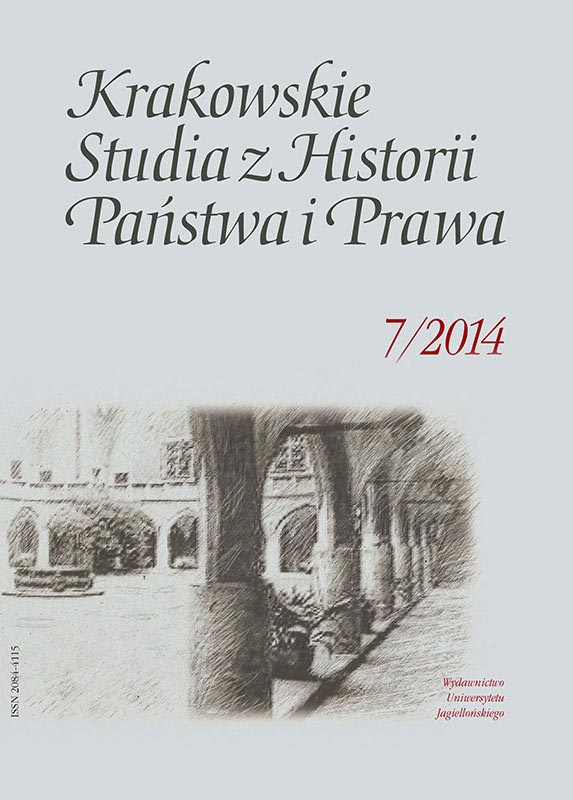Le rôle des arrêtistes dans la publication des sources juridiques françaises (XVIIe–XVIIIe siècles)
The Role of Arretistes in the Publishing of the French Sources of Law, the 17th through the 18th Centuries
Author(s): Philippe NélidoffSubject(s): Law, Constitution, Jurisprudence, History of Law
Published by: Wydawnictwo Uniwersytetu Jagiellońskiego
Keywords: French law; ordonance; customary law; arrêtistes; jurisprudence; judicature; parlement; attorney; judge
Summary/Abstract: It is for a long time now that legal historians have been interested in the paths along which the French law used to be created. It is true that the learned law (the Roman law as well as the Canon law) played a significant role in variety of fields. However the commonly applied customary law which slowly used to emerge due to the official compilations of customs as ordered by the Royal Ordinance of Montils-les-‑Tours (1454) and materialized in the 16th century, in the same way as the teaching of law – commenced worth the ordinances inspired by the royal professors of the French law. They often were the experienced advocates or judges who appeared at the same time at which the Ordinance of Saint-Germain was issued (1679) and they considerably contributed to the erection of the edifice of law, the one that was crowned with the Napoleonic codifications. What should not fall into oblivion is the role of the decisions of parliaments and the docrine bound with it, the decisions and the doctrine being inseparable in practice. While viewing the problem through that prism it is indispensable to study the role of arretistes, i.e. the judges and the advocates, experts in the practice of law, who published the compilations of judgements. They not only presented the most important court decisions but they additionally commented on them. The compilations doubtless make up a part of a larger collection (corpus) of law literature. The latter includes also the authors of legal studies such as law dictionaries, collections of legal styles and those devoted to civil law procedure, commentaries of customs and the authors of complaints. Those sources recorded in the written form a substantial part of legal act which in its essence is oral. However hundreds of collections of that type derived from the entire France of the 17th and 18th centuries have not been identified until now. On the Parliament of Toulouse it was possible to identify sixteen arrêtistes, which puts this Parliament at the second place after that atrributed the Parliament of Paris and ahead of Parliaments of Bretagne (10) and Provence (9). This position corresponds to the time of its origin (1444), the scope of its competence and the number of cases subjected to its cognition. The aforementioned collections, fully private, were often postnumously published and therefore were remote from the time with which they were concerned. On the other hand, as regards their 17th and 18th centuries editions, they were repeatedly republished. These works were highly erudite and referred to variety of matters, apart from those that dealt with penal law. It is difficult to determine the extent to which the discussed law literature had its influence on the decisions of Parliaments. It seems that the advocates had this kind of registers of cases for their own use and exploited them while engaged in the judiciary. The editing in Toulouse in 1831 by Jean-Baptiste Laviguerie of the previously non-published decisions of the Toulouse Parliament testifies to the long-lived value of this kind of sources of law. They survived the time of the Revolution and the Napoleonic codification activities.
Journal: Krakowskie Studia z Historii Państwa i Prawa
- Issue Year: 7/2014
- Issue No: 3
- Page Range: 433-445
- Page Count: 13
- Language: French

